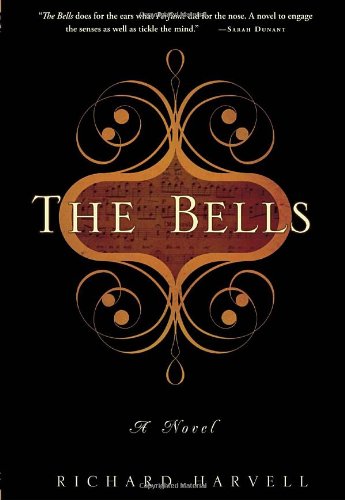The Bells
When I look at my copy of The Bells sitting in front of me, I cannot believe it lies there immobile and lifeless. The sounds and music within its pages should make the book throb and vibrate across the table. During the time I spent entranced with this story, my body rang like the bells within its pages.
The Bells is a fictional autobiography, a letter written by a castrati father to his son, explaining how their relationship came to be. Moses Froben is born in a remote Swiss village to a deaf-mute woman who finds her one great pleasure (apart from her love for her son) in the vibrations she feels ringing the massive bells in her village’s church. These bells are so loud that the villagers clamp their hands to their ears, but the sound has a different effect on Moses, giving him an almost magical ability to hear and dissect sounds, near and far. When the village priest (his father) discovers that Moses is not deaf like his mother, the man attempts to drown Moses in a river. Moses is rescued by traveling monks, Nicolai and Remus, and taken to the monastery at St. Gall. Here his angelic voice is discovered by the choir master and preserved for all time by a horrible act of castration.
Surprisingly, The Bells is a love story, for Moses falls in love with a woman who is forbidden to him. The Bells is also a mystery—for how can Moses, a castrati, a musico, be the father of the recipient of this novel-length letter? Finally, The Bells is music. Harvell’s magical prose gives sound to Moses’ life: the bells, the arias, and the uneven breath of true love.










